Following the news PSA Groupe has begun engineering its cars to meet U.S. compliance, the French automaker’s CEO shed some light on future export plans for his latest acquisitions: Vauxhall and Opel.
Specifically, he spoke of Vauxhall, which has been a badge sold exclusively in the United Kingdom for years. Under PSA ownership, Vauxhall cars could go global, however.
“Exporting for us is very good, as long as the business plan flies. People get very excited about exports but forget one thing: it can backfire on them because if you want to export, your manufacturing costs need to be really competitive,” Tavares said, as reported by Auto Express.
His comments make for one big caveat with regards to Vauxhall exportation: the plan obviously must make money. “Everything is open – we are very pragmatic people. It’s all about efficiency – if we’re highly efficient we’ll be profitable. And if we’re profitable we’ll be sustainable. And if we’re sustainable, nobody has to worry about their job,” Tavares added.
The PSA chief previously said he’s letting Opel brass concoct the German and British brands’ turnaround plan. In the meantime, PSA is expecting more losses ahead in the short run.
The potential to export Vauxhalls is a bit of a questionable one. Vauxhalls are right-hand drive, and unless its facilities begin churning out left-hand drive vehicles, its markets are scarce for new opportunities. If PSA eyes a return to the U.S., for example, it obviously won’t be selling right-hand drive vehicles. Furthermore, Opel likely has more recognition than Vauxhall stateside. We’ll simply have to wait and see what the future holds.

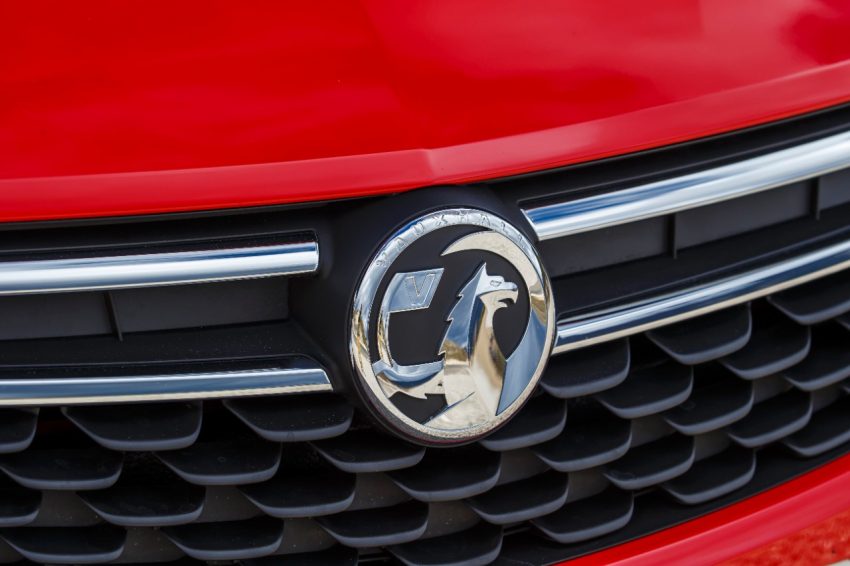

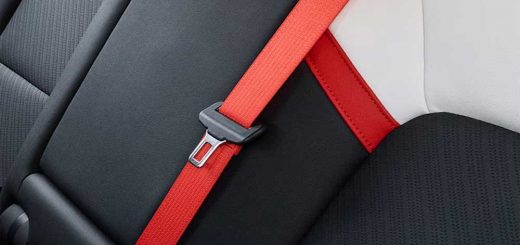
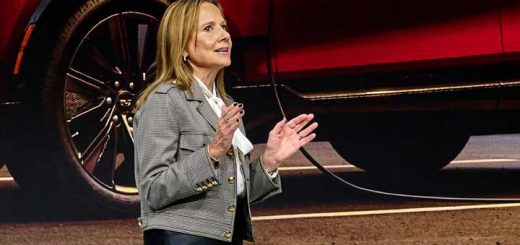

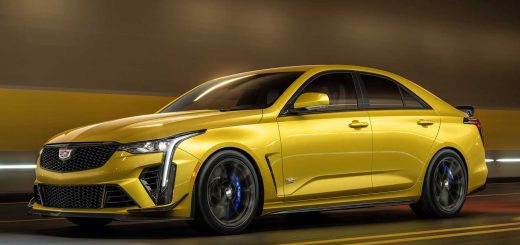
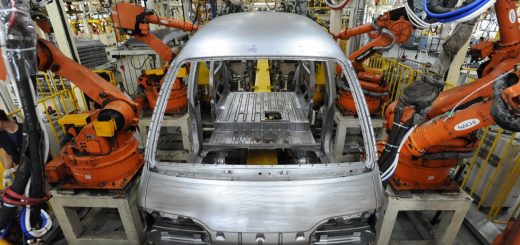
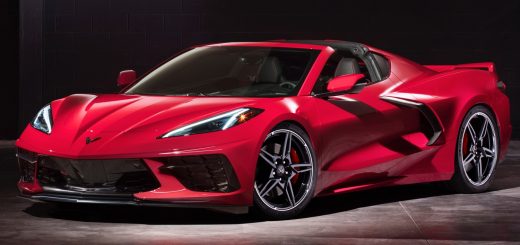





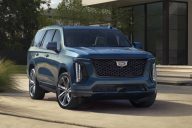
Comments
With this talk about right hand and left hand steering, this article ventures into the absurd. All Opel/Vauxhall factories produce all their cars in both right hand and left hand steering version. And they all put Opel or Vauxhall logos on their cars. Special for the Vauxhall branded cars is only that the Vauxhall logo is exclusively put on cars with the steering wheel on the right. There is no technical reason to put the Vauxhall logo also on cars with the steering wheel on the left, as is done with Opels all the time.
There is no factory which exclusively produces Vauxhall branded cars.
Observer 7 is of course absolutely correct in what he says.
Personally I think any new LHD markets should be targeted with Opel branding.
I’m assuming Tavares sees an opportunity for the Vauxhall brand in RHD commonwealth countries, eg. India, Pakistan, Malaysia, Singapore along with other RHD markets such as Indonesia, Thailand and Japan. There is no current Opel-Vauxhall presence in these countries and visitors to the UK from India, Pakistan, Bangladesh, etc. will be very familiar with the Vauxhall brand.
Where Opel is already well-established in RHD markets such as across Southern Africa, then Opel branding should be retained.
Observer 7 is of course absolutely wrong in what he says.
What side the steering wheel is on should have no bearing at all in what brand is used in any given market
Actually RHD/LHD does have a bearing on the brand. The vast majority of RHD countries (driving on the left) are former British colonies and current commonwealth members (Zimbabwe excluded). So targeting the large RHD Asian markets with Vauxhall branding should certainly be considered. As for the West Indies and Polynesia in general, I think these markets are too small to warrant re-establishing the brand there. Once the non-compete agreements are up, Australia and New-Zealand could be considered, as opined by Daryl (below), along with Canada, though the USA, I feel, is a non-starter.
Japan is the one stand-out RHD exception with no direct British connection, but it is a huge market nonetheless. Post-war and up to 1970 Vauxhall was a popular export to Japan and there is perhaps an opportunity for a few well-differentiated niche models such as Adam, Corsa VXR, Astra coupe VXR, Mokka X, Grandland, The Mini range does well among the imports and VW is also successful with the Golf, Scirocco and Beetle, though little else from their mainstream range.
With regard to LHD markets, in the 1960’s and 70’s, the Vauxhall brand was popular and well respected in particular across Scandinavia, the Benelux countries and Switzerland. If you refer to the historical sections of ‘http://bestsellingcarsblog.com’ you will note that the Viva regularly featured in the Top-ten best sellers in Sweden and Finland, often outselling the similarly priced Kadett. Alas, 35-years have elapsed since GM withdrew the Vauxhall brand from Europe and Eire and I think it would be foolhardy trying to reintroduce Vauxhall.
Vauxhall would do well importing any of their models, countries such as India would buy Viva, Mokka, Crossland x & Corsa so why not try to gain a foothold, yes it wouldn’t be easy but it’s also not impossible.
Sure, most victims of British colonialist rule drive on the left of the road (NIgeria being one of the largest exception, just as all former British colonies in West Africa). Also Indonesia drives on the left, having been not a direct victim of British colonialist rule, but of the bloody British effort to impose colonial rule again on Indonesia with the help of Japanese. This did cost a lot of lives and destruction, but could not prevent Indonesia’s independence.
I just wonder why those peoples should be especially fond for brands associated with their oppressor which they had so much trouble to get it off their back.
Observer 7 – you really are a full time pratt and your racist rants are beginning to really f..k me off. Based on what you have said the French and Polish people in Europe would not buy German cars because they were occupied by the Nazis in World War II – which is patently ridiculous. Nobody with a brain, which obviously excludes you, is clinging on to what happened decades ago. The rest of the World has moved on and I suggest you grow up and start living in the real World instead of some 100 year old fantasy.
David1256 is misreading what I wrote, and utters an insult attributing “racist rants” to me when I voice a strong opposition against racism and colonial oppression.
I wrote that people in the Third World would not develop a special fondness for the products associated with their former oppressor, but I did not write that because of having been (or still being) a victim of colonialism, people would despise especially products associated with their oppressor (or former oppressor).
I just voiced my speculation that Myanmar might have decided to swith to driving on the right hand side of the road in order to get rid of the vestiges of the colonial past.
David1256 writes that “Nobody with a brain, which obviously excludes you, is clinging on to what happened decades ago”, but he tells us the opposite, namely that people in the former British Empire are “clinging to what happended decades ago” and would therefore happily buy cars just because they carry the Vauxhall label, associated with the colonial master. Please allow me to have strong doubts on that.
NO – YOU – NOBODY BUT YOU – ARE CLINGING TO THE PAST. LIKE I SAID COLONIAL OPPRESSION HAS NOTHING AT ALL TO DO WITH BRITAIN AND CAR SALES IN ANY MARKET ANYWHERE IN THE WORLD AND THE ONLY PERSON WHO HAS CONTINUALLY BROUGHT THE SUBJECT UP IS YOU. IT IS THE SAME AS ME POSTING THE ASSOCIATION THAT OPEL HAD WITH THE NAZIS DURINNG THE WAR IN EVERY POST. IT IS IN THE PAST AND THAT IS WHERE IT SHOULD STAY. I DON’T LIKE ANY FORM OF OPPRESSION OR RACISM AND I CERTAINLY DON’T LIKE YOU FOR CONTINUALLY BRINGING THE BLOODY SUBECT UP AS IF IT MEANS SOMETHING IN TODAYS WORLD.
Please don’t SHOUT.
1st. Then — in appropriate cases I do mention the history of Opel before the end of the 2nd WW. A US company providing with the Opel Blitz the transport backbone for the “Wehrmacht”, but also that while they used forced labor from the occupied countries, they did not use workers from concentration camps – probably out of quality consideration.
2nd. It is not me who brought up the British Empire and her former colonies as a possible area to sell under the Vauxhall label.
Please don’t SHOUT.
1st. Then — in appropriate cases I do mention the history of Opel before the end of the 2nd WW. A US company providing with the Opel Blitz the transport backbone for the “Wehrmacht”, but also that while they used forced labor from the occupied countries, they did not use workers from concentration camps – probably out of quality consideration.
2nd. It is not me who brought up the British Empire and her former colonies as a possible area to sell under the Vauxhall label.
3rd. Colonialism and racism DO play an important role in today’s world. Unfortunately.
You have completely missed the point that Carlos Tavares was making. Forget what Auto Express may think, the factory and what side the steering wheel is on is totally irrelevant. What Tavares said, and it confirms correspondence I have had with his office, is that there are SOME world markets where the Vauxhall brand may gain greater acceptance than the Opel brand. The former GM operations in Europe no longer have to be Opel centric, PSA have an open minded approach to what it does in the future.
GM has got rid of TWO global brands that in many countries are known of, if not existent in those countries. That’s half the battle concured in that people remember & have fond memories about the brand. Add to this clever marketing & non car related products to help build the brand such as toy models, clothing etc & slowly build from there even if it means 1 decent seller & the rest just there, one day they’ll be two decent sellers etc, some markets might not even get the full range of models just a few to suit whatever market. TWO global brands to add to their other brands, PSA probably cannot believe their luck, bet they think they’ve had birthdays & Christmas all at once.
PSA knows that there will be a US/UK free trade pact. Vauxhall plants will produce US bound models.
It seems as if PSA might split Opel and Vauxhall as global brand. UK and German cars will sell better than French models. In addition, UK and US environmental regulations will be less strict than EU.
PSA hit paydirt with Opel and Vauxhall as channels through which to sell French products.
Nobody knows if there will be “a US/UK free trade pact”, 1st because Brexit might not happen at all, but end in a morass of a “Hotel California” from the famous song: “You can check out any time, but you can never leave.”
2nd — the current POTUS has written off TTIP, which would have returned US industry to a dominant position in Europe, for not being favorable enough for a “America first, America first” president, so why would this bullying USA give the small UKoGBaNI more preferences than to the largest internal market of our time? George Orwell described the future of such a relation in his “1984”, Britain als “landing strip No. 1”.
3rd — if actually there would be a slight advantage for exporting from Britain to USA, then this advantage would be cancelle by the much higher cost of establishing an assembly site for a smal run of _all_ Opel/Vauxhall models on the island in addtion to the normal asssembly lines. If there should really be a market for Opel/Vauxhall cars in North America, a factory in the NAFTA area would make more sense.
Besides, it is an open question if the automobile industry on the island would survive a Brexit at all. Tata is already building a second factory for Jaguar-Land Rover in Slovakia.
To repeat with maybe more clarity than in my initial post:
1st : There is no factory which produced only Vauxhall branded cars, and factory which produces only Opel branded cars.
2n: There is no factory owned by Opel Automobile GmbH which produces only cars with left hand steering or which produces only those with right hand steering.
3rd: Opel branded cars come with both left hand steering and right hand steering. Vauxhall branded cars only with right hand steering.
4th: Tavares said nothing more than “if there is a business case for introducing Vauxhall branded cars in other national markets outside the UK, why not?” and he insisted: But it must be profitable.
I for my part did not voice any preferences, I just stated facts as they stand today.
90% of your clarification is not relevant to what you said that was wrong.
“There is no technical reason to put the Vauxhall logo also on cars with the steering wheel on the left”
It doesn’t need a technical reason, it requires a MARKETING reason and it is that which Tavares was referencing.
1. What factory produces the car is irrelevant
2. What side the steering wheel is on is irrelevant
3. That Opel branded vehicles are right or left hand drive is irrelevant
4. That Vauxhall branded vehicles are only right hand drive at the moment is irrelevant
Tavares and his team are focusing on what is the best sales strategy in every market they operate in now AND what is the best branding options for markets that they do not sell in at the present. And I can tell you from my correspondence that the above is not just confined to Vauxhall & Opel, it applies to Peugeot, Citroen & DS as well. As I said earlier, unlike GM, PSA have a completely open mind with regards to their future strategy and will not be based just on what has been traditional practice in the past. PSA are fully behind the purchase of Vauxhall/Opel but they, and Tavares in particular, are also adamant that the previous way of operating did not work and needs to change.
Thanks — your quote does put the finger on another typing error in my initial post. There is a NOT missing to make the meaning clear:
“There is no technical reason _NOT_ to put the Vauxhall logo also on cars with the steering wheel on the left, as is done with Opels all the time.”
I was typing under lots of time pressure. Sorry for all the misunderstandings.
And the “1st” in my previous post is also badly formulated. Better is this:
1st : There is no factory which produces only Vauxhall branded cars, as there is no factory which produces only Opel branded cars.
On the other hand — Tavares makes it quite clear that it is up to the management of Opel Automobile GmbH to produce the business plan for Opel, and that he is open to any plan which is profitable. I don’t hear of any preferences on his side.
And, frankly, a correspondence which I can’t read and which is reported by some anonymous whose real existence is hidden, is for all practical purposes non-existent for me. Or nothing more than a possibility. It might be true and it might not. I don’t give a damn.
No problem, typos are easily done.
“PSA factories appear ‘more efficient’ than Opel plants, Tavares says” as reported by Automotive News, I would say is a preference and I think hints at the future. All the pleasant exchanges between PSA & Vauxhall/Opel at the moment will unfortunately turn into a bloodbath eventually. I still seriously doubt that whatever plan Opel come up with will pass muster with PSA and the outcome will be the “PSA plan” , that I have no doubt is lurking somewhere in France, will be the actual path that is eventually followed.
It would be inappropriate to post personal correspondence here, apart from the fact that what I sent was 23 pages long and the reply was 9, but I am assuming that as it was from the office of Carlos Tavares, not he himself, that it accurately reflected his thoughts on what I sent. As somebody who has a website accessible to the entire World, anonymity is not something that is very descriptive of me, but like you I don’t give a damn.
David, I believe you’re quite right insofar as there won’t be an Opel plan, there’ll simply be a PSA plan. I don’t believe for one moment that PSA bought Opel Group on the proviso they didn’t know what they would do with it, but instead would purchase it on a whim and see what Opel Group management might come up with. That of course would be pretty much the same Opel management team that managed to run up billions of Euros of losses for longer than the Euro or indeed Opel Group has been around. Simply put, Tavares is not that stupid.
With regard to Vauxhall – yes, there are markets in which Vauxhall is probably a better punt than Opel. North America is possibly one, Japan might be another, Australasia may be a contender too and maybe even China. Opel has tried – and in many markets failed – to trade off its Germanic origins, presumably in the hope that it may benefit from the halo which surrounds Audi, BMW and Mercedes. Unfortunately for Opel, Volkswagen can pull that trick off much better, leaving Opel pretty much as an also-ran… no matter how many cringeworthy Caludia Schiffer ads they may wish to run.
But whilst there are other manufacturers trying to imitate the Big 3 German players, nobody since the demise of Rover – for reasons best discussed elsewhere – has tried to muscle in of the love for Jaguar Land Rover, Aston Martin, Bentley and other established British brands. There’s surely got to be an opportunity outside these shores – especially post Brexit – for the Vauxhall brand by positioning itself as a ‘British Volkswagen’.
Separately, I see that what last week was General Motors United Kingdom Limited is now once again, Vauxhall Motors Limited… contrary to some suggestions the company would be renamed Opel Group UK Limited. As another piece of the jigsaw falls into place, I wonder what plans GM is making for its own return to the UK and EU?
Justjohn – Agree with you, although the US might be a 50/50 call. Not sure which would fly better – Vauxhall or Opel, some would remember Buick Opels (the later cars were actually Isuzus) others might recall the Cadillac Catera, which did nothing to enhance the “made in Germany” reputation but on the other hand older Americans might remember the Victor F Series which was reliable but rusted to bits in minutes or the famous Firenza fiasco in Canada. It’s interesting that the diesel reputation damage to VW seems greater in the US compared to Europe.
As a registered company Vauxhall Motors Ltd has been around since before the GM takeover in 1925 but you’re right the trading company of GM (UK) Ltd has now been dropped, I for one never believed for a moment that there would be an Opel (UK) Ltd, that was just wishful thinking by a few on this board, I did wonder if PSA would combine all their brands in the UK under one management group but that would probably not fit with the separate brand marketing. I see Rory Harvey is still Chairman & Managing Director of Vauxhall Motors Ltd and CEO of Opel Ireland, I wonder how long before there are some new senior (PSA preferred) appointments.
” I for one never believed for a moment that there would be an Opel (UK) Ltd, that was just wishful thinking by a few on this board, ”
Certainly not. They are no fools. They know that the label Vauxhall sells by the pretension of being a British automaker. That fiction would be seriously damaged by calling the British branch office “Opel” instead of Vauxhall.
You see in this forum of people who should know it better and in this “Auto Express” magazine for automobile fans how strong this fiction lives in the mind of people. Some even believe that all Vauxhall branded Opels are assembled in Luton and Ellsmere Port.
No no, nobody in his mind would want to change the name of the British subsidiary to Opel.
More puerile crap & propaganda from the usual source.
Insults of other participants in this forum are not helping to create an athmosphere for a fruitful exchange of informations and opinions.
NO IT DOESN’T – SO STOP POSTING YOUR RACIST COMMENTS ABOUT BRITAIN. I DON’T HAVE A PROBLEM WITH ANYBODY ON THIS BOARD – APART FROM YOU. YOUR MORONIC STATEMENTS ABOUT WHATEVER HAPPEND IN THE BRITISH EMPIIRE A CENTURY AGO ARE OFFENSIVE AND BELONG IN THE PAST WHICH IS WHERE YOU SEEM TO SPEND MOST OF YOUR MISERABLE EXISTANCE.
@Justjohn: your talk about “Opel Group” shows that you did not follow the news about how the sale of Opel to PSA has occurred.
No, Opel Group GmbH was NOT sold to PSA. Opel Group GmbH was merged into Adam Opel GmbH, one of the inactive subsidiaries of Adam Opel was renamed to Opel Automobile GmbH, and then Adam Opel transferred “all Opel/Vauxhall automobile business” to Opel Automobile GmbH in the way of a new share of 100 Euro.
Per 31st July, Opel Automobile’s new owner became Peugeot S.A., Paris. Opel Automobile GmbH, Rüsselsheim (Germany) is the owner of all six assembly plants, fife parts factories and the ITEZ development center.
Opel Group GmbH in turn ceased to exist in May or so of this year.
Ah, well, not to forget that Adam Opel is still owned 100% by GM, and does nothing but pay the factory pensions of _former_ Opel workers – until they all went six feet under (if the workers in Opel’s factories in Spain, Portugal, Belgium, Britain, Poland, Austria and Hungary also have factory pensions, the factory pensions of their former colleages are now still under Adam Opel).
Follow the news, not your fantasies.
I have written this on this forum back then.
I used Opel Group solely as a collective term to refer to the former assets of General Motors Europe acquired by PSA Groupe and not in any other sense.
Another error: no, no, GM did not sell “the former assets of General Motors Europe”, and that is why the did not sell the Opel Group GmbH, but merged this company into the traditional Adam Opel GmbH, which was to stay in GM’s ownership. Opel Group GmbH was “GM Europe” under Opel leadership, but not owning anything, at least not the Adam Opel AG or GmbH.
They only sold the Opel/Vauxhall automobile business with the six assembly plants, five parts factories and the development center, concentrated into the Opel Automobile GmbH, which then got a new owner: Peugeot SA, Paris.
I don’t know how the company is called which is now distributing GM cars in Germany and other parts of Europe. There is a “Cadillac Europe GmbH” registered in Glattpark near Zürich, Switzerland — back to the roots of “GM Europe”. I don’t know about Chevrolet (yet).
Sorry to say, but your tale about a completely unknown sending an unsolicited 23 page letter to an international company makes you look like a windbag.
I hope you learned something from the 9-page prospectus.
I think Tavares just wanted to point out that Vauxhall can export just like Opel does. And that will help in keeping the Vauxhall fires burning.
Oh, and there’s a political message in their to the unions in the UK.
End of story.
* there
I think there is a message for unions at Vauxhall and Opel and, judging by the unrest in France at Macron’s proposed labour law changes, French unions as well.
Without a doubt. He wants, craves and needs profitability across ALL brands in the PSA Group portfolio.
I wonder how much of his annual bonuses are tied to growth & profitability!
No, no, no. There is no entity named “Vauxhall” which exports or imports. Vauxhall is nothing but a label owned by Opel Automobile GmbH.
Opel exports, and it exports cars branded as Opel or Vauxhall (and also imports such branded cars from Korea for sale in Europe and elsewhere).
I thought I refuted clear enough the nonsense in above article about “Vauxhall-factories”.
No really, there is https://beta.companieshouse.gov.uk/company/00135767 If you take a look at the company accounts for Vauxhall Motors Limited, you’ll find the company owns both the Ellesmere Port and Luton plants.
Of course, in every country where Opel Automobile is doing business, especially in such countries where this company has production facilities, they need a branch establishment in that country, to hire workers and pay their salaries, maintain the facilities, pay taxes, colled sales revenue and transfer it to the main office. And so and so on. But don’t confuse a branch establishment according to the company laws of each individual country with an independent entity developng their own products and makeing their own business strategies.
Concerning the island, it would be foolish to call the British branch establisment of Opel Automobile by the name “Opel”, if one wants to maintain the fiction of Vauxhall being a British automobile maker (which it isn’t). So it is called Vauxhall, since the Opel cars are marketed in Britain under the label “Vauxhall”. Any other name for the British branch establishment would be detrimental to the fiction of Vauxhall being more than just a label and a marketing gimmick.
And that Vauxhall labelled cars are not produced in “Vauxhall factories”, but in factories owned by Opel Automobile GmbH or other factories of the PSA group (Grandland in Sochaux, France). In every one of them the same and identical cars get an Opel or Vauxhall label, depending on their destination.
BTW, note the “Previous company names” on the Companies House entry:
General Motors UK Limited 16 Apr 2008 – 18 Sep 2017
Vauxhall Motors Limited 12 May 1914 – 16 Apr 2008
But this has nothing to do with Opel Automobile using that label “Vauxhall” in other markets, too. This is up to Opel Automobile and their owner PSA to decide if they try to fool customers with the “German” Opel label or the “British” Vauxhall label.
Utter horse s..t
Please? What?
Do you have lost your language?
First of all, why don’t the first world countries get together and figure out what is the best side of the road to drive on. Then mandate That all car from say 2025 and on be right hand drive or left hand drive!
I don’t care which one so that you don’t have to design two different versions of the same car that can be sold in any country.
Second what psa is really saying is that we don’t want to sell your crap cars here so we are sending them to a country far far away!
Nice idea, but the last country which changed was Sweden in the 1950ies.
I believe that before, Myanmar changed from left-hand-driving to right-hand-driving in a move intended to shed off British colonialist past.
For the rest of the world, things are settled since the Great French Revolution not only brought democracy and metric scientific measurements to the world, but also driving on the right side of the road, while on the island and its Empire, there is unfinished business left over by Cromwell.
Seriously?!
Circa 34% (2.6 billion) of the world’s population drive on the left. The cost, let alone the chaos of change and massive strategic infrastructure upheaval deem it entirely daft.
When Sweden changed from RHD to LHD in September 1967, the population was less than 4 million driving only 1.5m vehicles. In preparation for ‘Dagen-H’ changeover day, it took 12 years of preparation and from legislation in 1955 only LHD new vehicles could be sold in Sweden. Strangely, despite 83% of the population voting to keep RHD, the government of the day opted for change to LHD. Democracy in action indeed!
You say that Swedish Høger day was in 1967? My memory situates it much earlier.
Anyway, today there is by far too much concrete and steel road infrastructure installed which is specific to a given driving way, that a change is nearly impossible. Much less resources are needed for real problems plagueing humanity than uniformity in the side of the road we are driving our cars on. That human beings can very well adapt to both show the thousands of drivers of trucks, buses and cars moving across the English Channel every day.
Surely with increasing autonomy just around the corner, what side the steering wheel will soon become all but irrelevant?
Isn’t there an agreement between PSA with General Motors to keep Opel products from coming to the United States which most likely include Vauxhall.
Umm…. *Buick.
Of course, Vauxhall being just a label owned by Opel Automobile does not need to be mentioned.
There is a non-compete agreement which on the one hand allows Opel to use GM-owned technology incorporated in their current lineup for free, but then limits the exports of such cars to those markets which are currently (at the moment of the take over) served by Opel (including Opel’s Vauxhall brand). When you look up opel.com, you should get a page to chose your country with all those countries being served.
The other side of the non-compete agreement is that GM won’t return to Europe for three years after Opel being passed to PSA.
Back In the day the Vauxhall was a popular alternative to Holden,a step up In class. Opels recent foray Into Australia under It’s own badge was to say the least a massive flop. I wonder If the marketing boffins at GM. were to use the Vauxhall connection with the upcoming Holden would that resonate better with Australians. As both Holden and Vauxhall are right hand drive Is the next Holden due 2018 In fact out of the Vauxhall factory and not Opel, would make more sense.